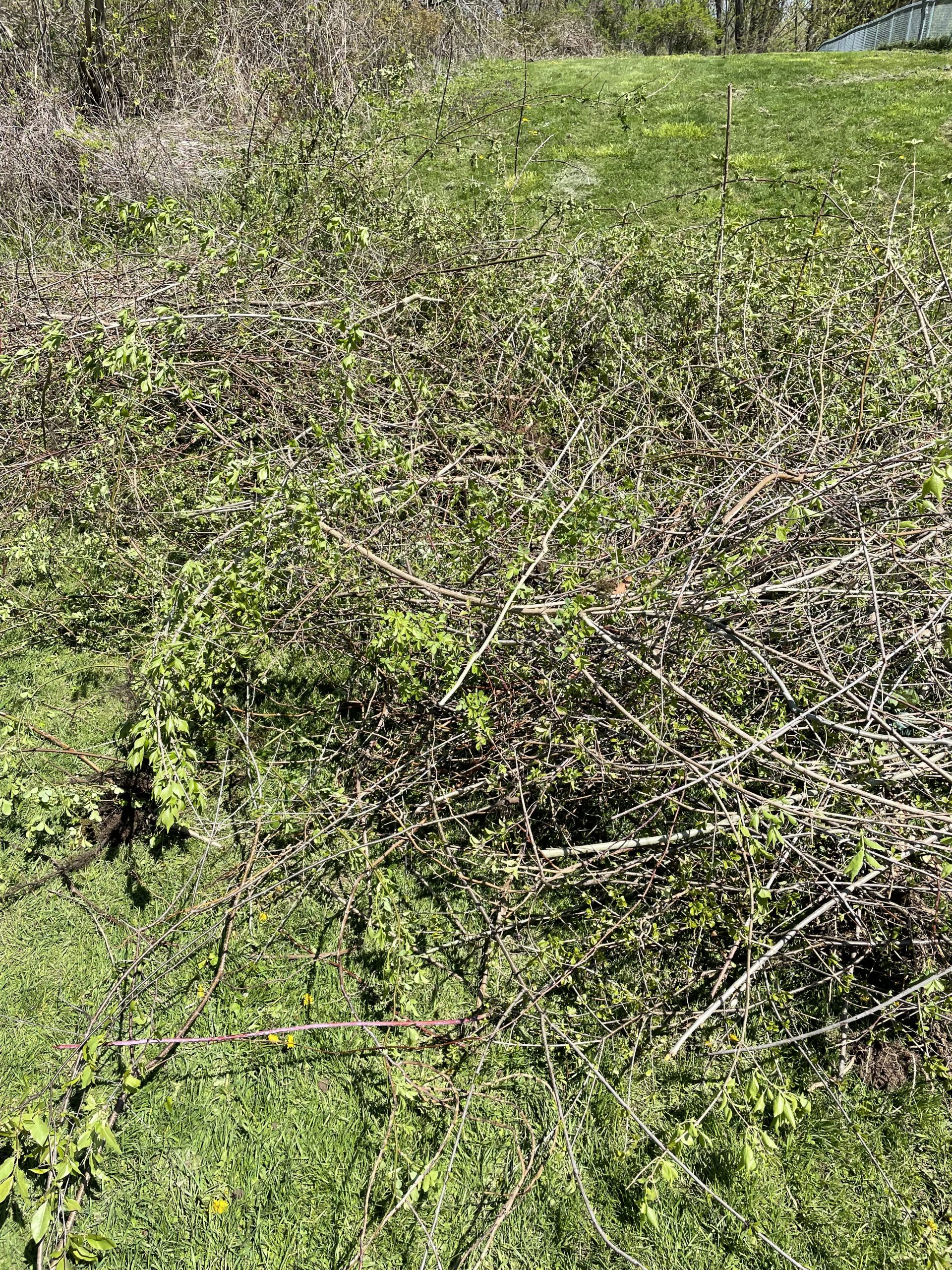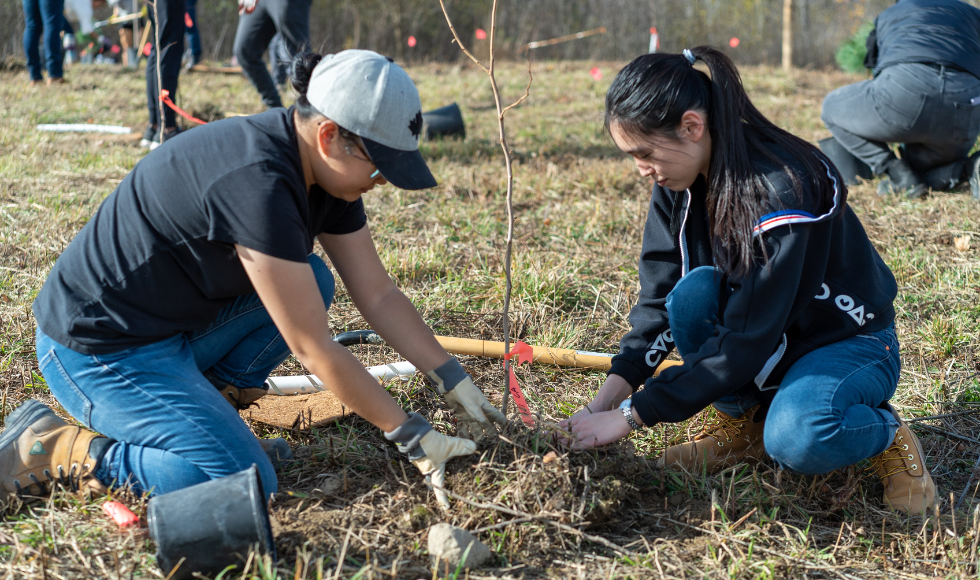Information Box Group

Native Plant & Tree Plantings Native Plant & Tree Plantings
Native trees, shrubs, and wildflowers contribute to healthy ecosystems by providing food and habitat for local species. With the help of an amazing team of staff and volunteers, Nature at McMaster has been making campus a healthier ecosystem for our native species. Learn more about Nature at McMaster’s planting projects here!

Invasive Species Management Invasive Species Management
Invasive species pose a threat to healthy ecosystems as they outcompete important native species and reduce biodiversity. Learn how Nature at McMaster is tackling these difficult species here.

Native Pollinators Learn More About Campus Pollinators
McMaster University is working to provide habitat for native pollinators on campus, and a variety of projects contribute to McMaster’s status as a certified Bee Campus.
Interpretive Hikes Nature at McMaster Events
Interpretive hikes are a great way to learn more about your local ecosystems, make friends, and get some exercise! Get engaged with your environment and learn something new by attending a Nature at McMaster interpretive hike.

Education and Outreach
Cooperation is key to protecting our local environment. Nature at McMaster is proud to engage in education and outreach initiatives to connect students, faculty, local landowners, and environmental organizations in our efforts to conserve and protect the natural world around us.
